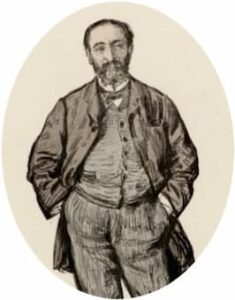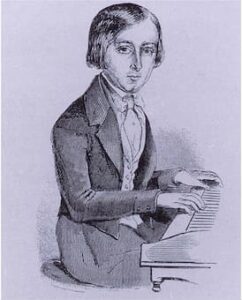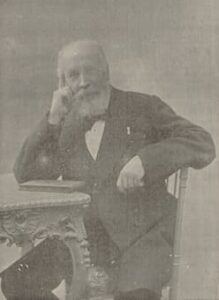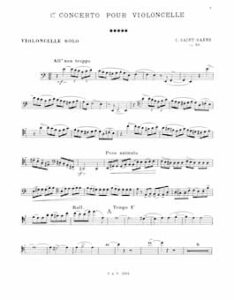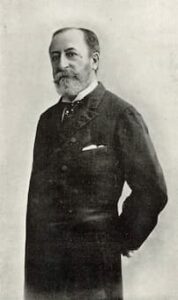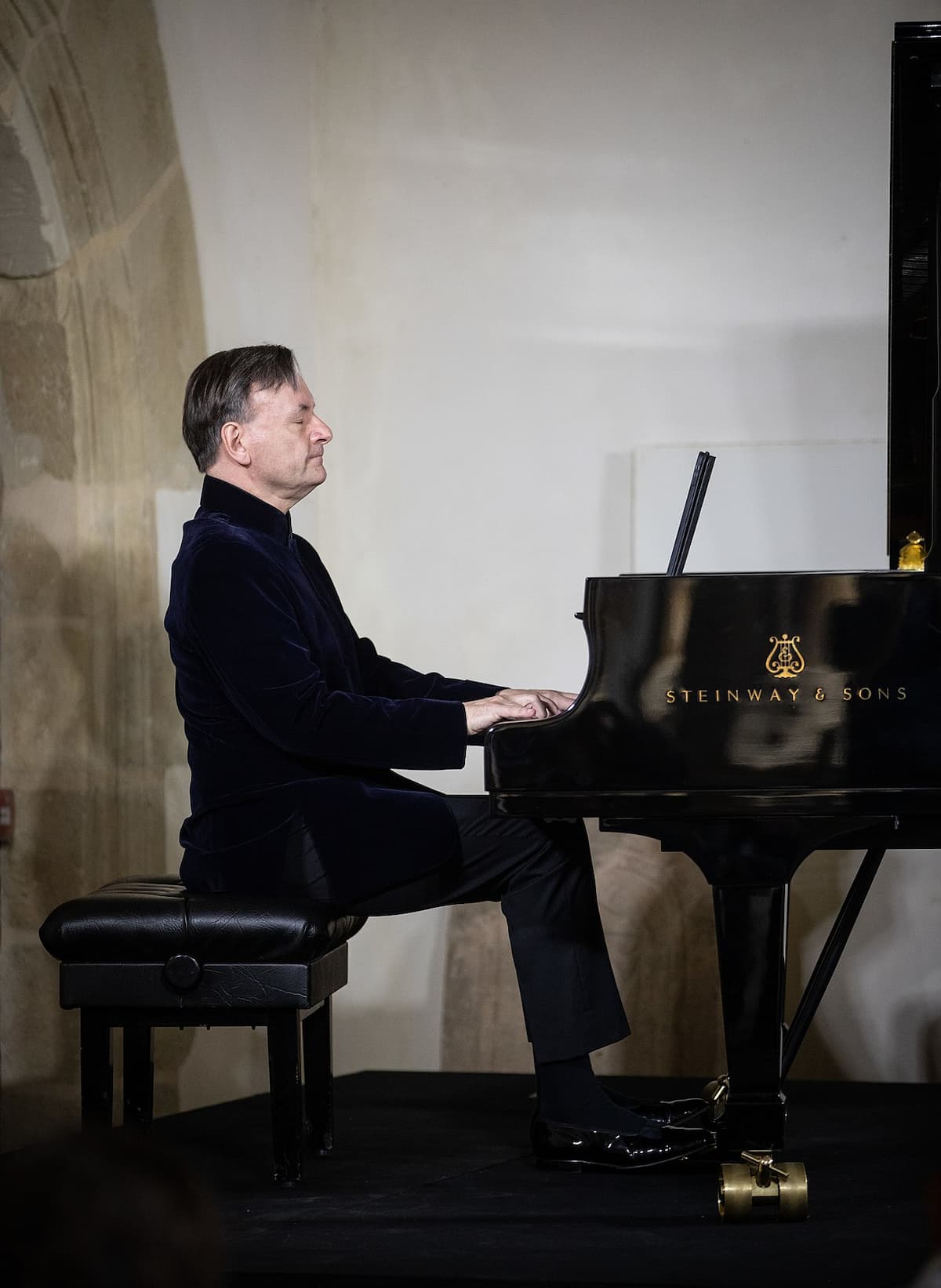
Sir Stephen Hough
While his achievements as a pianist are well-known and documented, Hough is also a respected author with four books and hundreds of articles to his name. In addition, a solo exhibition of his paintings was presented in London in 2012. It’s hardly surprising that The Economist included him in the list of “Twenty Living Polymaths.”
In addition, Hough is also a published and frequently commissioned composer, having crafted works for orchestra, choir, chamber ensemble, organ, harpsichord, and solo piano. He has received commissions from the Takács Quartet, the Cliburn, the Berlin Philharmonic Wind Quintet, and the Gilmore Foundation, among many others.
First Compositions
According to his father, Hough had memorised seventy nursery rhymes by the age of two. Be that as it may, singing was indeed his first form of musical expression, “especially as we had no classical music in my childhood home.” Hough sang hymns in primary school and church; later, he joined a choir in high school, and he joined the compulsory chorus at Julliard.
Hough started piano lessons at the age of six, and he began to compose at around the same time. He remembers writing a “Mass” in his teenage years, but Hough is generally dismissive of his juvenilia compositions. As he writes, “the Mass
Transcriptions
Apparently, Hough composed a substantial number of works, but as he related in an interview, “mercifully, that pile of smudged sketches has disappeared.” These early efforts culminated in a viola sonata, the only early work that was actually published. However, for the next twenty odd years, Hough composed next to nothing, except an odd transcription or two. Hough related the story that after a recital in New York in the late 1990s, when he played his transcription of Rodger’s Carousel Waltz, he was chatting with the composer John Corigliano.
Corigliano told Hough, “You should compose your own music. The only real difference between a transcription and writing your own pieces is using your themes rather than someone else’s.” This conversation became the starting point for a renewed engagement with compositions. Hough started to write little pieces for friends, and the bassoonist Graham Salvage from the Hallé Orchestra asked him to write a concerto. As Hough explained, “In a mad moment or reckless courage, I agreed to have a go and started sketching what eventually became The Loneliest Wilderness, my first serious piece in two decades.”
First Commissions
The Loneliest Wilderness was inspired by the poem “My Company” by Herbert Read (1893–1968), containing the following lines:
But, God! I know that I’ll stand
Someday in the loneliest wilderness,
Someday my heart will cry
For the soul that has been, but that now
Is scatter’d with the winds,
Deceased and devoid.
I know that I’ll wander with a cry:
‘O beautiful men, O men I loved,
O whither are you gone, my company?’
The work is based on two main musical ideas: the interval of a descending fourth and a rising chain of thirds. Introvert and restrained, this musical oration has a strong Jewish flavour to it, taking its inspiration from “the heart-breaking regret of an army officer as he looks back at the loss of the company of soldiers under his command.”
Takács Quartet
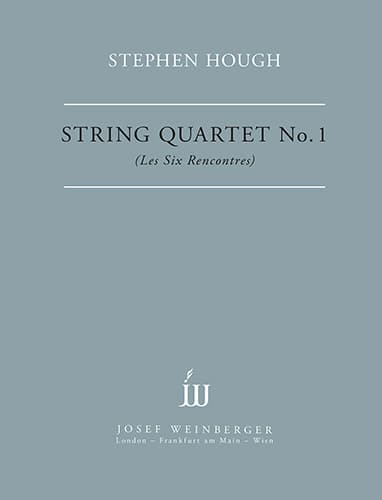
Stephen Hough’s String Quartet No. 1
Dedicated to the Takács Quartet, Hough’s first string quartet premiered in December 2021. As it was commissioned as a companion piece to works by Ravel and Dutilleux, the composer set out to explore “not so much what united their musical language, but what was absent from them.” Although there are no quotes or direct references to the composers of Les Six, as captioned in the subtitle, the composer imagines unspecified places and memory where meetings might have taken place.
This string quartet “evokes a flavour more than a style,” according to Hough, “but a flavour rarely found in the music of Ravel and Dutilleux. In Les Six it’s not so much a lack of seriousness, although seeing life through a burlesque lens is one recurring ingredient; rather it’s an aesthetic re-view of the world after the catastrophe of the Great War. Composers like Poulenc and Milhaud were able to discover poignance in the rough and tumble of daily human life in a way which escaped the fastidiousness of those other two composers.”
Sonatas and Beyond
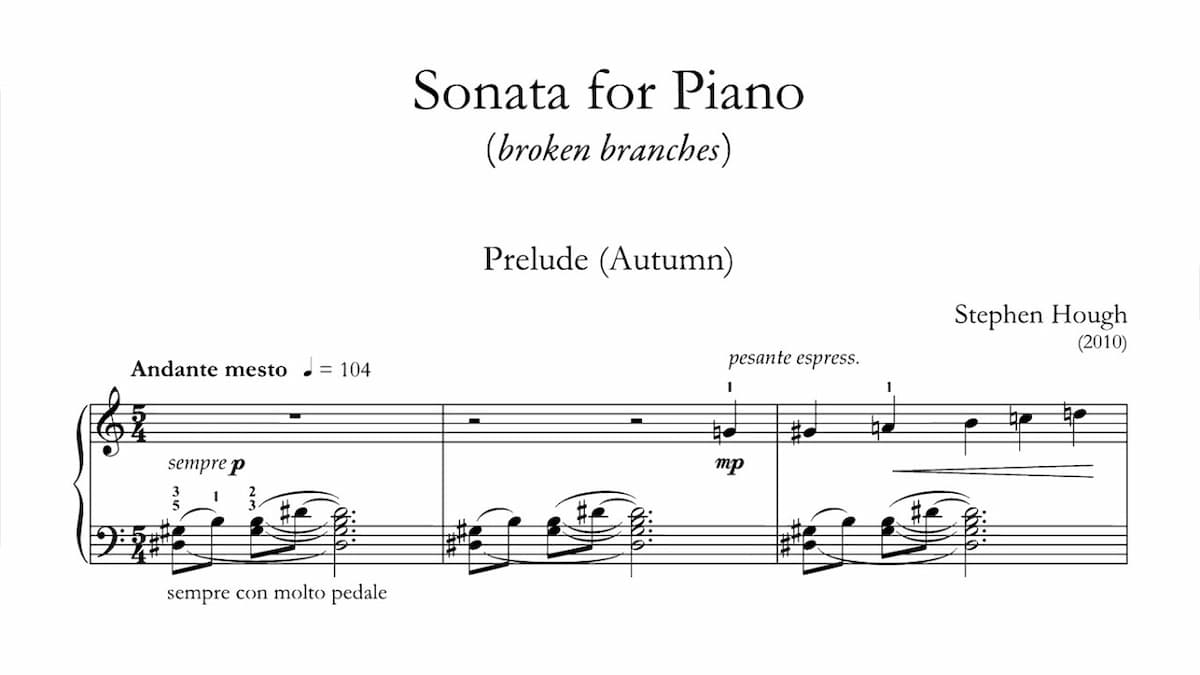
Stephen Hough’s Broken Branches
The term “Sonata” had a multiplicity of meanings over the years, but for Hough “it has kept its wordlessness and its seriousness; a sonata, regardless of form, is a statement of unity, if not uniformity.” And although the composer is wary of words or descriptions attached to them, he argues that “music is neither a thought nor an emotion nor a person, but very much its own entity. His sonata “Broken Branches,” is an oblique tribute to Janáček’s On an Overgrown Path, and a passage from Scripture: “I am the vine, you are the branches. Cut off from me you can do nothing.”
The sonata is constructed of sixteen small and inconclusive sections, like branches from a single tree. “Broken branches” functions in three ways; fragments of fragility, related in theme but incomplete and damaged.” The work seems to grow naturally out of Hough’s style of playing, and it opens with a “Prelude” and ends with a “Postlude” of identical music, but the anguish of the opening G-sharp minor becomes a glowing G major at the end. “Branches beginning life anew in a new spring.” The climax of this sonata is a section called “non credo,” based on “material from the Credo of my Missa Mirabilis, which explores issues of doubt and despair in the context of the concrete affirmations of the Nicene Creed.”
A Statement of Faith
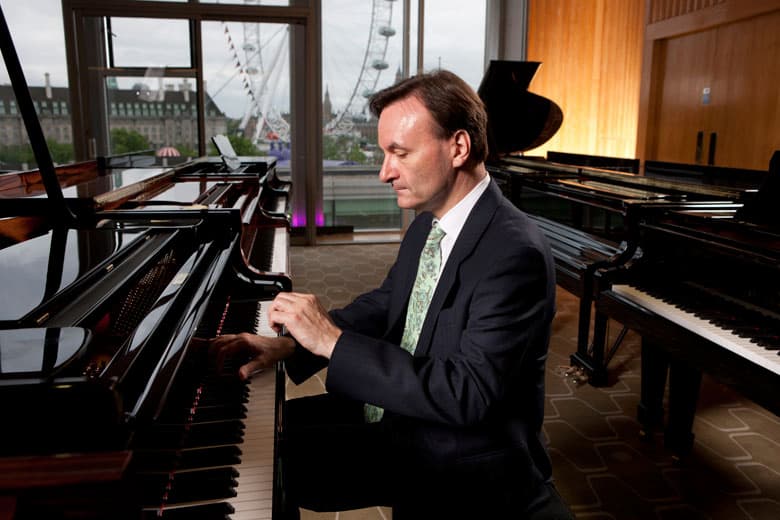
Stephen Hough joined the Roman Catholic Church at the age of 19, and he considered becoming a priest, in particular joining the Franciscan Order. Hough has extensively written about his homosexuality and its relationship with music and his religion. As he wrote, “Catholicism is still home for me. And despite everything, I haven’t found anything that suits me better.” Hough is attracted to the idea that Catholicism doesn’t emphasise rich and powerful people, but embraces poverty and simplicity. “Christianity celebrates what is ultimately important about being human—community, and concern for the widows, the prisoners, the prostitutes, people who are outcasts. I find that very attractive.”
The Missa Mirabilis is connected with a highly personal experience. Hough had been working on the piece for about one year when he had a serious car accident, overturning his car on the motorway at 80 mph. “I stepped out of the one untouched door in my completely mangled car,” he remembers, “with my Mass manuscript and my body intact, then wrote part of the “Agnus Dei” in St. Mary’s Hospital, waiting for four hours for a brain scan. I was conscious, as I was somersaulting with screeching metallic acrobatics on the M1, of feeling regret that I would never get to hear the music on which I’d been working so intensely in the days before. Someone had other ideas.”
The Partita was commissioned by the Naumburg Foundation for Albert Cano Smit in 2019. As Hough explains, “composing four sonatas of a serious, intense character, I wanted to write something different – something brighter, something more celebratory, more nostalgic.” Scored in five movements, the outer movements “Overture” and “Toccata” are inspired by the world of a grand cathedral organ. The short three inner movements, “Capriccio,” and “Canción y Danza I & II,” are based on the interval of a fifth and partially represent an explicit homage to Federico Mompou.
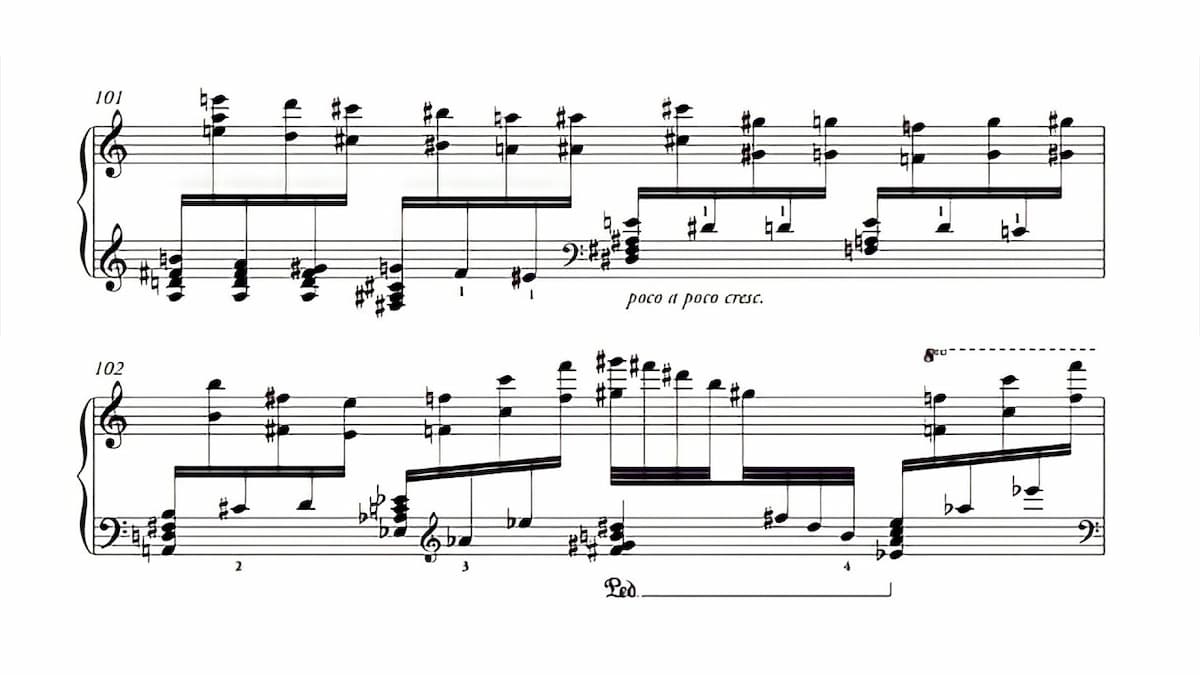
Stephen Hough’s Fanfare Toccata
In 2002, Hough was commissioned to write a work for the 2022 Van Cliburn International Piano Competition, performed by all 30 competitors. Hough took his inspiration from a variety of toccatas he had learned over the years, including Scarlatti, Liszt, and Rachmaninoff, Poulenc, Prokofiev and Samuel Barber. This inspiration accounted for the fanfare flourish complemented by a deeply romantic tune. It really does speak well of Hough’s composition that all 30 competitors have decided to make the Fanfare Toccata a part of their regular recital repertoire.

